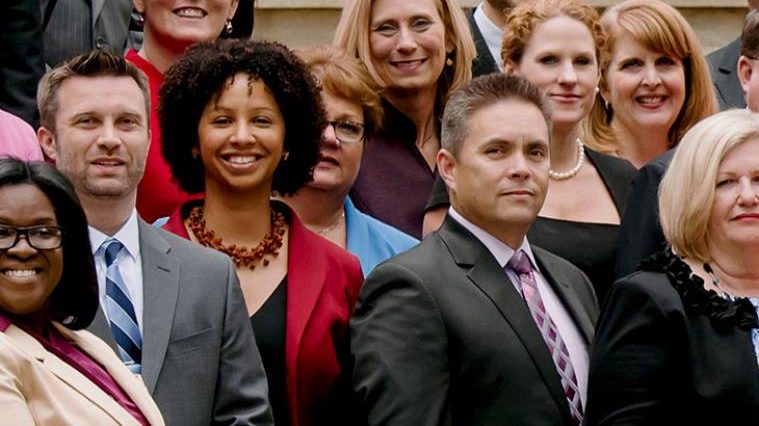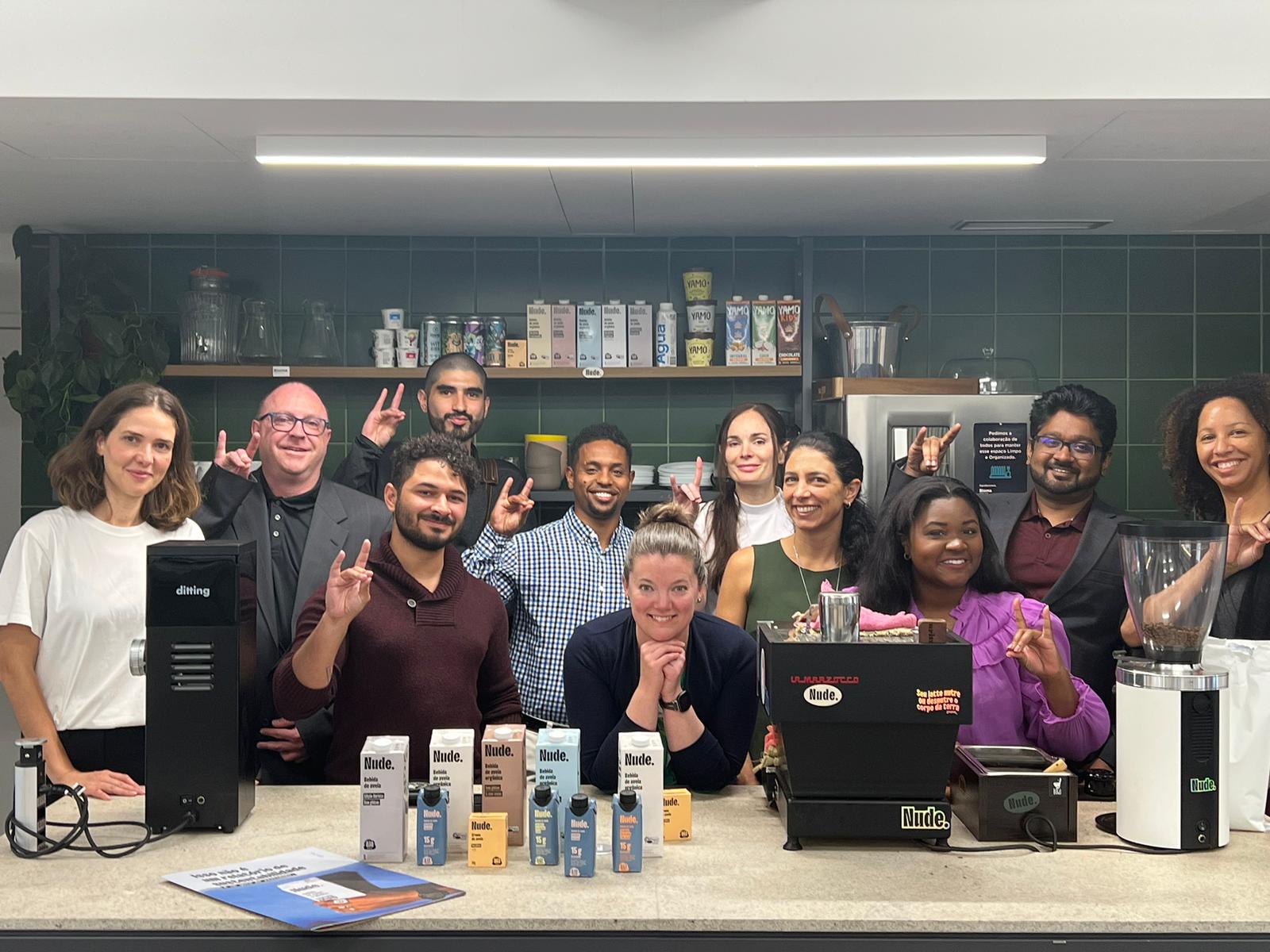Jessica Thomas: Strengthening skills, network through Leadership NC

Jessica Thomas, director of the Sustainability Initiative at the NC State Poole College of Management, joined an elite group of business, civic and community leaders this summer as one of 55 graduates of Leadership North Carolina’s class of 2014-15.
“It was an honor to be accepted into the program and to follow in the footsteps of my colleagues at NC State and other leaders across the state in government, academia, industry and civil society,” Thomas said.
Since 1995, Leadership North Carolina participants have been selected from among active and engaged citizens across the state to participate in the program. It was designed to enable them to become better informed, developed and engaged in greater understanding and involvement in issues and opportunities facing the state.
As part of the eight-month program, Thomas completed a series of in-depth seminars that focused on state and local government, economic development and a host of emerging issues that affect citizens in all parts of North Carolina, from all walks of life.
Sustainability – a subject of particular interest to her – was a key focus of many of the topics that the participants studied, which included healthcare, education and the environment.
“As one of close to a thousand LNC alumni, I have renewed faith that we can make North Carolina a place where all North Carolinians can thrive,” Thomas said.
The program’s series of two-day sessions offer a deep dive into emerging issues, providing participants firsthand experience and opportunities for open dialogue about how to improve the quality of life for all North Carolinians.
“Leadership North Carolina’s model connects participants with leaders who are experts in a range of key issues for the state, demonstrating the interconnectedness of those issues,” Thomas said. “That model better prepares all of us to take a leadership role in addressing those issues collaboratively.”
As part of Leadership North Carolina, Thomas traveled to cities across the state, visiting key sites and learning about challenges faced by leaders, job creators, and educators.
A session held in Raleigh with government leaders was particularly eye-opening and informative, Thomas said.
“We had a chance to hear from and engage with distinguished speakers, including the Honorable Nancy McFarlane, mayor of Raleigh, and Kevin Trapani, president and CEO of The Redwoods Group,” she said.
The remarks of the Honorable Henry E. Frye, retired Chief Justice of the North Carolina Supreme Court, particularly left an impression on many participants, she said. “Although Justice Frye had been denied the right to vote in North Carolina when he was a young man because of the color of his skin, he has worked tirelessly his entire life to improve the lives of North Carolinians,” Thomas said.
“Justice Frye encouraged us to have a cup of coffee with someone we disagree with, to find points of commonality, points of intersection. That’s the way we will make progress,” she said.
Diane Cherry, environments policy manager for the Institute for Emerging Issues at NC State, one of the other participants this past year, said being accepted to Leadership North Carolina is an honor and a great opportunity to engage with leaders across the educational, non-profit, government and business sectors.
“Leadership North Carolina takes 50 bright and accomplished North Carolinians each year and exposes them to the public policy issues affecting our state,” Cherry said.
“As a graduate of the program, I have used my contacts within LNC on many occasions during my work at the Institute for Emerging Issues. I have found that when I meet one of the LNC alumni, there is an instant bond with that individual,” she said.
Similarly, Thomas said her participation in Leadership North Carolina will help advance the Sustainability Initiative’s mission through the new connections she has made with leaders in government, education, and industry.
At the close of the program, Thomas and other participants worked together to plan and set priorities for how they can improve and empower the communities where they live and work, and in North Carolina as a whole.
“LNC gave me the knowledge and network to take a systems approach to the challenge of influencing how businesses operate in ways that drive measurable financial, social and environmental prosperity, both here in North Carolina and around the world,” she said.
“Our mission in the Sustainability Initiative is to prepare the next generation of leaders by engaging students, faculty, and the local and global business communities to drive positive business results,” Thomas said. “I will bring the lessons I’ve learned and the network that I’ve built in LNC to further drive that mission forward.”
Learn more about Leadership North Carolina at LeadershipNC.org.
- Categories:


